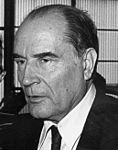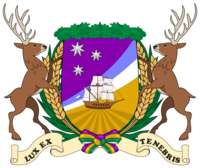1971 Gagian Assembly election
| |||||||||||||||||||||||||||||||||||||||||||||||||||||||||||||
All 335 seats of the Gagian Assembly 168 seats needed for a majority | |||||||||||||||||||||||||||||||||||||||||||||||||||||||||||||
|---|---|---|---|---|---|---|---|---|---|---|---|---|---|---|---|---|---|---|---|---|---|---|---|---|---|---|---|---|---|---|---|---|---|---|---|---|---|---|---|---|---|---|---|---|---|---|---|---|---|---|---|---|---|---|---|---|---|---|---|---|---|
| Turnout | 85.4% ( | ||||||||||||||||||||||||||||||||||||||||||||||||||||||||||||
| |||||||||||||||||||||||||||||||||||||||||||||||||||||||||||||
| |||||||||||||||||||||||||||||||||||||||||||||||||||||||||||||
The 1971 Gagian Assembly election was a Gagian parliamentary election held on 31 May 1971. It was the fifth Gagian Assembly election since the establishment of the Second Gagian Republic in 1953. All 335 seats of the Gagian Assembly were up for grabs, with a minimum of 5% of the vote or 17 seats in the prior session required to participate in the election.
After the 1967 election barely failed to topple the Green Realist Party-led ruling coalition, who won the most narrow majority ever seen in the Gagian Assembly of 168 seats. However, the coalition was forced to elect compromise candidate Alain Dubos as Prime Minister due to a fracture in the coalition over the recent oil crisis caused by Green Realist foreign policy towards the authoritarian regimes in the Gulf of Atily. These policies had already caused sharp increases in the price of oil in Gagium. To worsen the widespread inflation that Gagium was struggling with, the Drought of 1968-69 caused steep prices in the rise of crops such as wheat. Dubos' refusal to cooperate with the government of Pätschlàn meant that food had to be imported from allies such as The Furbish Islands.
In 1968, former soldier and author Ulysse Cohen founded the Revolutionary Committee for Reform as a far-left alternative to what he viewed as the 'weak' People’s Labor Party. The party would explode in popularity after the Drought of 68-69 and Alain Dubos' "The Situation is Under Control" speech, which was described as a 'national embarassment' by opponents and allies alike.





